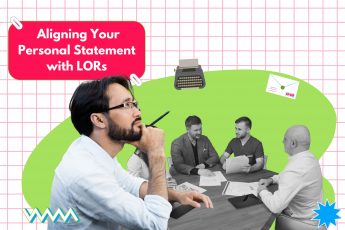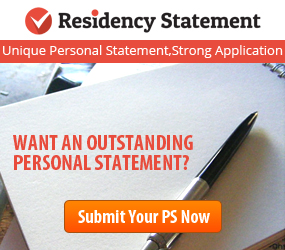Ah, interview season. The flurry of preparations, the hope-filled air, and of course, the palpable nervousness. Our team at Residency Statement are witnesses to this annual ritual. We understand the whirlwind of emotions that come into play, especially the anxiety associated with unpredictable residency interview questions.
Your personal statement, a piece of document that you’ve poured your heart and soul into, stands at the core of these interviews. Far from being a mere paper trail of your achievements, it’s a narrative of your journey, ambitions, and driving forces. It’s where you’ve distilled years of hard work, challenges, and dreams. And unsurprisingly, it’s this very document that often becomes a focal point during the interviews.
Why? Because interviewers are on the lookout for genuine individuals, not just impeccable profiles. They want to discern the person behind the paper, gauge your sincerity, and determine whether your aspirations align with their institution’s values. Herein lies the beauty and significance of your personal statement. It’s your voice, your story. And it’s only logical for interviewers to mine this narrative to craft their questions.
1. Understand the Purpose of Your Personal Statement
Before anticipating residency interview questions, it’s essential to understand the primary function of your personal statement. It typically serves to:
- Showcase your passion and dedication for a particular field or position.
- Highlight your relevant experiences and achievements.
- Explain any anomalies in your academic or professional history.
- Illuminate your character, values, and personality.
- Knowing this, you can predict that questions will be tailored around these themes.
2. Break Down Your Personal Statement
Dedicate some time to critically read your statement. Highlight or underline key points, experiences, claims, or declarations you’ve made. For each highlighted section, think of potential questions. Here’s how:
Experiences and Achievements
If you mentioned a specific project, internship, or experience, expect questions like:
- “Can you elaborate more on your role in [specific project]?”
- “What challenges did you face while working on [specific experience] and how did you overcome them?”
- “How has [specific achievement] prepared you for this position?”
Goals and Ambitions
If you’ve talked about your aspirations or future plans, consider:
- “Where do you see yourself in five years?”
- “How does this position align with your long-term goals?”
- “What steps have you taken towards achieving [specific ambition]?”
Anomalies or Challenges
If you addressed a gap in your resume or a low grade, prepare for
- “Can you explain the gap in your employment between [date] and [date]?”
- “How did you overcome the challenges you faced during [specific period]?”
- “What lessons did you learn from [specific setback]?”
Character and Values
When you’ve shed light on your character and personality:
- “How would your colleagues describe you?”
- “Can you provide an instance when your values were put to the test?”
- “What qualities do you believe are essential for this role, and how do you embody them?”
3. Reflect and Rehearse
Once you’ve anticipated the questions, it’s not just about memorizing answers. Instead, reflect on them. Understand the essence of your experiences and how they’ve shaped you. Practice your responses, but keep them genuine. Consider doing mock interviews with mentors or peers to get feedback and refine your answers.
4. Stay Open to Unexpected Residency Interview Questions
While it’s essential to prepare, it’s equally important to stay flexible. Not every question will be directly from your personal statement. Some might be situational or hypothetical. Approach them with the same sincerity and thoughtfulness. Remember, the goal is not just to provide an answer but to demonstrate your thought process, values, and adaptability.
5. Bridge to Other Experiences
Sometimes, a question might not align perfectly with your prepared stories or experiences. In such cases, bridge the gap. Find a relevant experience or learning that can be connected to the question. This showcases your ability to draw from diverse experiences and think on your feet.
6. Wrap Up with a Personal Touch
Interviews are not just about showcasing your qualifications but also about connecting with your interviewers. As you answer questions, weave in anecdotes or personal stories when appropriate. This not only substantiates your claims but also makes your responses memorable.
Final Thoughts
Your personal statement is a reflection of your journey and aspirations. By anticipating residency interview questions based on it, you prepare yourself to share your story confidently and genuinely. Embrace the process, trust your experiences, and let your passion shine through in each response.
If you’re looking for specialized interview prep help, consider checking out Match A Resident’s interview prep service at https://www.matcharesident.com/interview-prep-service. They offer expert guidance tailored to your unique journey.
Questions about what to expect in interviews or want help updating your Personal Statement? Reach out to us directly at (858)-221-8590 or email support@residencystatement.com and we will be happy to assist you!









Leave a Comment